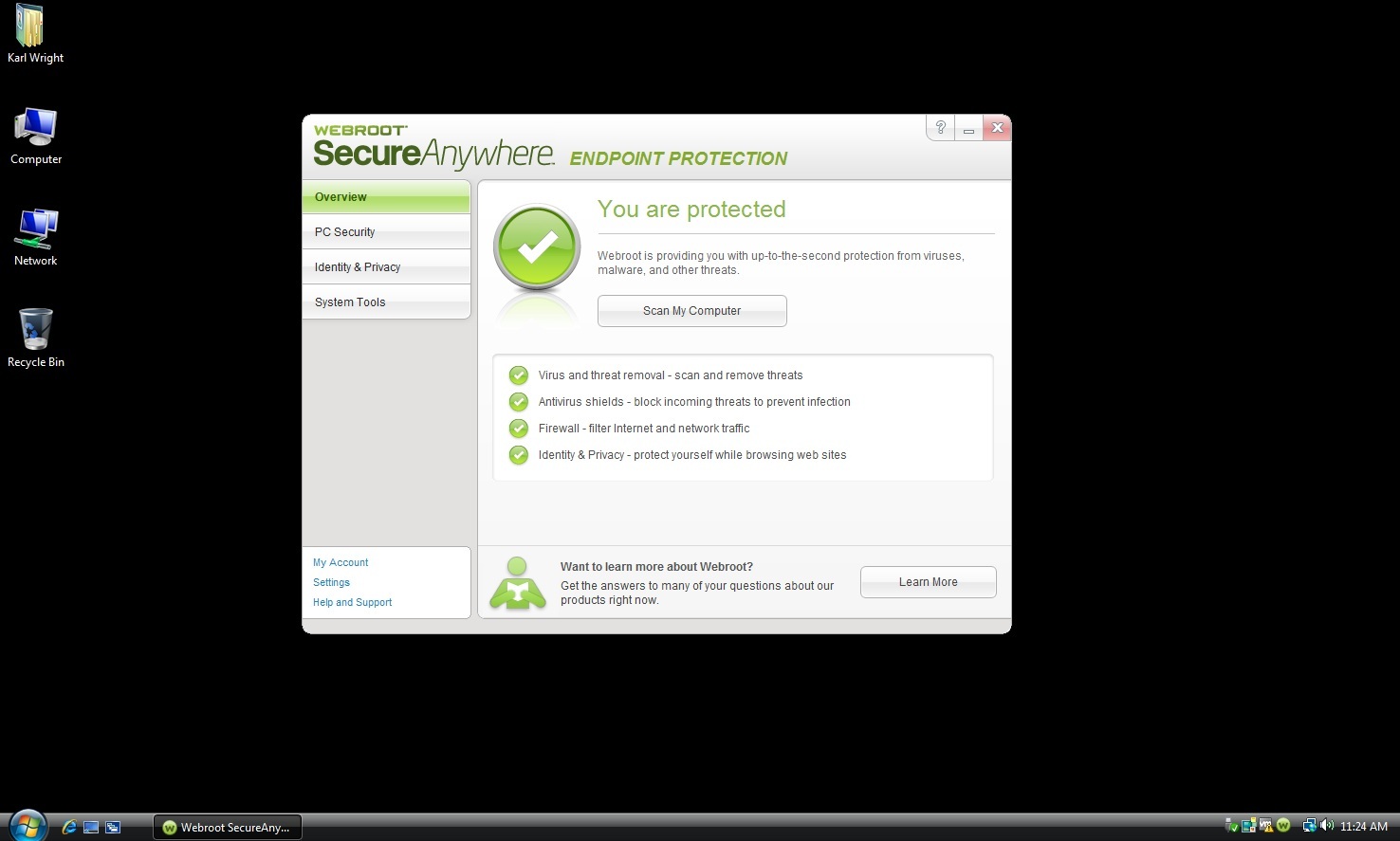Webroot SecureAnywhere Endpoint review
Webroot’s latest anti-virus software is hosted in the cloud and is fast, efficient and can be combined with other products to bolster protection.
Webroot SecureAnywhere did as well as its competitors in most of our tests, and was up to 10 times faster when it came to scanning. We like the the use of the cloud as virus signatures are kept up-to-date and the precision with which it lets you manage users makes it attractive. The eight reporting tools round off a set comprehensive features, which will be of use to IT admins.
Webroot SecureAnywhere Endpoint is security software which uses the cloud to provide up-to-date protection for users.
The advantage of using the cloud means that the virus definitions are always up to date. You can't get caught out by a new virus on Monday because your systems are set to update on Tuesdays.
A light touch
Webroot installs scanning and system-cleaning software on PCs, along with a firewall. However, as the firm provides the bulk of the service through the cloud, the client software is tiny. You only need to install a 650kb file compared to 54MB for programs such as F-Secure Internet Security and a whopping 106MB for Symantec Antivirus.
SecureAnywhere also uses fewer system resources than its competitors. When it's running in the background the software uses 5MB of RAM, rising to between 14-20MB when it's running a scan. The software is quick too. It took only 1 minute 38 seconds to scan our 40GB test PC. By comparison, Symantec Antivirus used 21MB of memory when it was at rest and 130MB of RAM when performing a scan. It took over ten minutes to perform the same scan. Kaspersky and F-Secure's results were comparable.

SecureAnywhere's scan engine is incredibly lightweight, hardly using any system resources, and scans are super-quick
Virus and malware detection
To test the program's effectiveness we installed it on six test PCs and then spent several hours, over the course of a few days, carrying out activities such as surfing high-risk sites and downloading cracked software.
We then checked the test PC with F-Secure, Symantec Antivirus and Webroot SecureAnywhere.
After this assault on our test system SecureAnywhere found it had been infected one piece of adware, three Trojans and unidentified malware. However, it didn't spot three instances of spyware caught by F-Secure or 17 tracking cookies found by Symantec Antivirus.
Get the ITPro daily newsletter
Sign up today and you will receive a free copy of our Future Focus 2025 report - the leading guidance on AI, cybersecurity and other IT challenges as per 700+ senior executives
-
 Cleo attack victim list grows as Hertz confirms customer data stolen – and security experts say it won't be the last
Cleo attack victim list grows as Hertz confirms customer data stolen – and security experts say it won't be the lastNews Hertz has confirmed it suffered a data breach as a result of the Cleo zero-day vulnerability in late 2024, with the car rental giant warning that customer data was stolen.
By Ross Kelly Published
-
 Women show more team spirit when it comes to cybersecurity, yet they're still missing out on opportunities
Women show more team spirit when it comes to cybersecurity, yet they're still missing out on opportunitiesNews While they're more likely to believe that responsibility should be shared, women are less likely to get the necessary training
By Emma Woollacott Published
-
 OpenAI wants developers using its new GPT-4.1 models – but how do they compare to Claude and Gemini on coding tasks?
OpenAI wants developers using its new GPT-4.1 models – but how do they compare to Claude and Gemini on coding tasks?News OpenAI says its GPT-4.1 model family offers sizable improvements for coding, but tests show competitors still outperform it in key areas.
By Ross Kelly Published